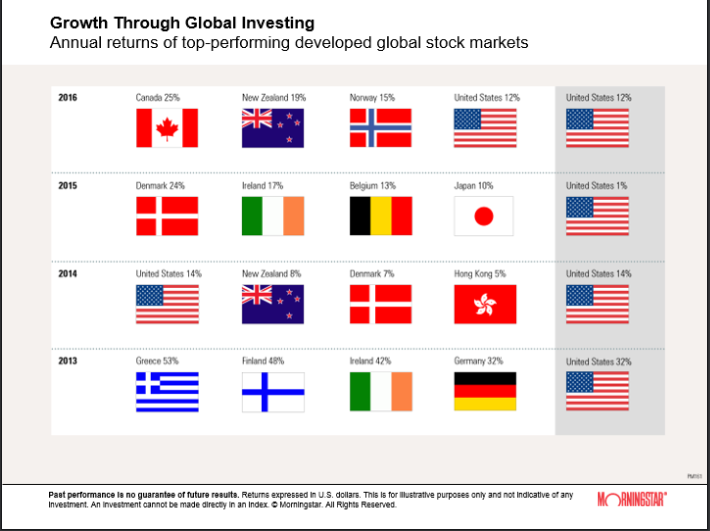Investing in International Markets

The Nuances of ERISA 404(c)
July 3, 2017
The Impact of Compounding Interest
November 14, 2017
International markets are defined as markets within countries that have developed economies, and they can be strong investing opportunities. According to data by Morningstar for the year 2016, around 46% of the total developed world stock market capitalization was international (not in the United States). When investors fail to recognize the potential of international markets, and only focus on domestic investment opportunities, they are missing out on close to half of the investable developed stock market opportunities in the world.
But how does one know if an international investment opportunity is a wise choice? There are certainly risks in every market. One way to determine worldwide economic expansion, and therefore decide which investing markets are promising, is by watching for a country’s rising gross domestic product (GDP). The GDP equation measures the value of all final goods and services produced in a country in a given year. Foreign direct investments and exports are two major drivers of economic growth, and GDP can give investors a pretty good idea of a country’s economic condition. This number can be a good indicator of potential international investment opportunities.
To put this concept into perspective, when the US is compared to other developed nations, it has been found that the growth of domestic GDP has been relatively low, on average, for the past five years. Conversely, other countries have actually seen much greater growth. In fact, the U.S. market has rarely been the top performer when compared with other developed stock markets worldwide. Evaluating these numbers can show that there are profitable markets outside of the U.S., and they could be a beneficial addition to a portfolio.
Including international investments in a portfolio has the additional benefit of increasing diversification. Certainly there are political, economic, and social risks within foreign stock markets, but there is also the possibility for higher returns. Since international markets move at different rates from US markets, international investments can potentially lessen risk when added to a domestic portfolio. Because it is near impossible to predict which country’s market will be a top performer in the future, it can also be beneficial to diversify across multiple international markets. Just like a mix of stocks and bonds is important, a mix of domestic and international investments can be valuable to a portfolio as well.
Though it may not seem logical, the volatility of domestic portfolios can actually be reduced by adding international stocks. Combining assets across international and domestic securities can many times produce a strong risk and return trade off. Therefore the wise investor should not just seek investments within domestic borders, but branch out to international markets as well.


